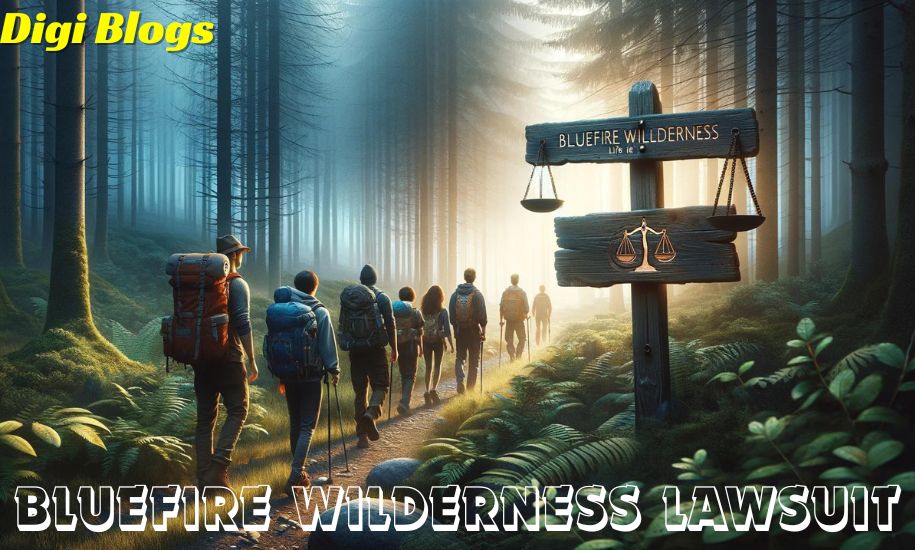Introduction to BlueFire Wilderness Lawsuit
The BlueFire Wilderness lawsuit has become a focal point of discussions concerning wilderness therapy programs. This lawsuit underscores the complex interplay between therapeutic interventions in natural settings and the alleged safety, abuse, and negligence concerns. This article delves into the intricacies of the BlueFire Wilderness lawsuit, examining its implications, the community’s response, and how it reflects broader industry challenges.
Table of Contents
ToggleUnderstanding the BlueFire Wilderness Lawsuit
At the core of the BlueFire Wilderness lawsuit are allegations of neglect, abuse, and negligence, raising serious questions about the safety and well-being of participants enrolled in the program. Families and participants have raised concerns over the practices at BlueFire Wilderness, leading to legal actions that spotlight the program’s operational ethics and safety protocols.
BlueFire Wilderness Lawsuit: Community and Reddit Reactions
Online platforms, including Reddit, have become arenas for open discussion about the BlueFire Wilderness lawsuit. Here, former participants, families, and interested observers share experiences, insights, and support. These discussions often reveal a spectrum of opinions, from personal testimonies of positive change to critical accounts of experiences that align with the allegations made in the lawsuit.
Examining BlueFire Wilderness Therapy Reviews
BlueFire Wilderness therapy reviews present a mixed picture. While some participants share stories of personal growth and positive transformations, others point towards experiences that resonate with the lawsuit’s claims of abuse and negligence. These reviews are crucial for understanding the multifaceted outcomes of the program and the varying impacts it has had on its participants.
The Allegations of Abuse within BlueFire Wilderness
A significant aspect of the BlueFire Wilderness lawsuit is the allegations of abuse. These claims have not only legal implications but also moral and ethical ones, prompting a broader industry reflection on the standards and practices of wilderness therapy programs. The allegations demand a reevaluation of how such programs are regulated, monitored, and implemented to ensure the safety and well-being of all participants.
The Future of Wilderness Therapy Post-Lawsuit
The BlueFire Wilderness lawsuit could set precedents for the wilderness therapy industry, influencing future regulations, standards, and practices. It opens up conversations about the ethical considerations, safety protocols, and the efficacy of wilderness therapy as a form of treatment for troubled adolescents. The industry’s response to these challenges will be pivotal in shaping its future direction and the trust it engenders from the public.
The Role of Transparency and Accountability in Wilderness Therapy
The Importance of Transparency in Wilderness Therapy
Transparency between wilderness therapy programs and the families they serve is crucial for building trust and ensuring safety. The BlueFire Wilderness lawsuit has highlighted the need for clear communication about the methods, risks, and benefits of such programs. Families must have access to all necessary information to make informed decisions about the therapeutic interventions proposed for their loved ones. This includes understanding the qualifications of staff, the specifics of the therapy provided, and the safety protocols in place.
Strengthening Accountability within Wilderness Therapy Programs
Accountability in wilderness therapy involves not only adhering to regulatory standards and professional ethics but also actively demonstrating commitment to participant well-being and safety. The concerns raised by the BlueFire Wilderness lawsuit underscore the necessity for programs to be held to high standards of care. This includes rigorous staff training, comprehensive emergency preparedness, and a transparent process for addressing grievances. Strengthening accountability measures can help ensure that wilderness therapy remains a positive, transformative experience for participants.
The Need for Comprehensive Evaluation and Reform
Evaluating the Efficacy and Ethics of Wilderness Therapy
The debate surrounding the BlueFire Wilderness lawsuit has catalyzed discussions about the efficacy and ethical underpinnings of wilderness therapy. It is imperative for the industry to support ongoing research and evaluation of these programs to solidify their place as a legitimate and effective form of therapy. This involves not only examining the short-term impacts on participants but also the long-term outcomes of their mental health and well-being.
Pushing for Industry-Wide Reforms
The lawsuit represents a pivotal moment for the wilderness therapy industry, prompting a reassessment of practices and policies. There is a clear need for industry-wide reforms that prioritize participant safety, enhance program transparency, and ensure that therapeutic claims are backed by solid evidence. These reforms could include establishing uniform standards for program operation, improving regulatory oversight, and fostering a culture of continuous improvement.
FAQs on BlueFire Wilderness Lawsuit
What is the BlueFire Wilderness lawsuit about?
The lawsuit alleges neglect, abuse, and negligence within the BlueFire Wilderness program, raising concerns about participant safety and program ethics.
Has BlueFire Wilderness responded to the lawsuit?
The specifics of BlueFire Wilderness’s response are part of ongoing legal proceedings, with the program likely to defend its practices and highlight its safety protocols.
Are wilderness therapy programs safe?
While many participants report positive experiences, the BlueFire Wilderness lawsuit highlights the need for thorough research and consideration when choosing a program, emphasizing the importance of safety and oversight.
What should I do if I’m considering a wilderness therapy program?
Research extensively, read reviews, and, if possible, speak to former participants. Look for programs with strong safety records, transparent practices, and professional accreditations.
Can the outcome of the lawsuit impact other wilderness therapy programs?
Yes, it could influence regulatory scrutiny, industry standards, and practices across wilderness therapy programs, potentially leading to broader reforms.
The BlueFire Wilderness lawsuit serves as a critical case study in understanding the challenges and controversies surrounding wilderness therapy. As legal proceedings continue, the outcomes of this lawsuit may have far-reaching implications for participants, families, and the broader wilderness therapy industry.

